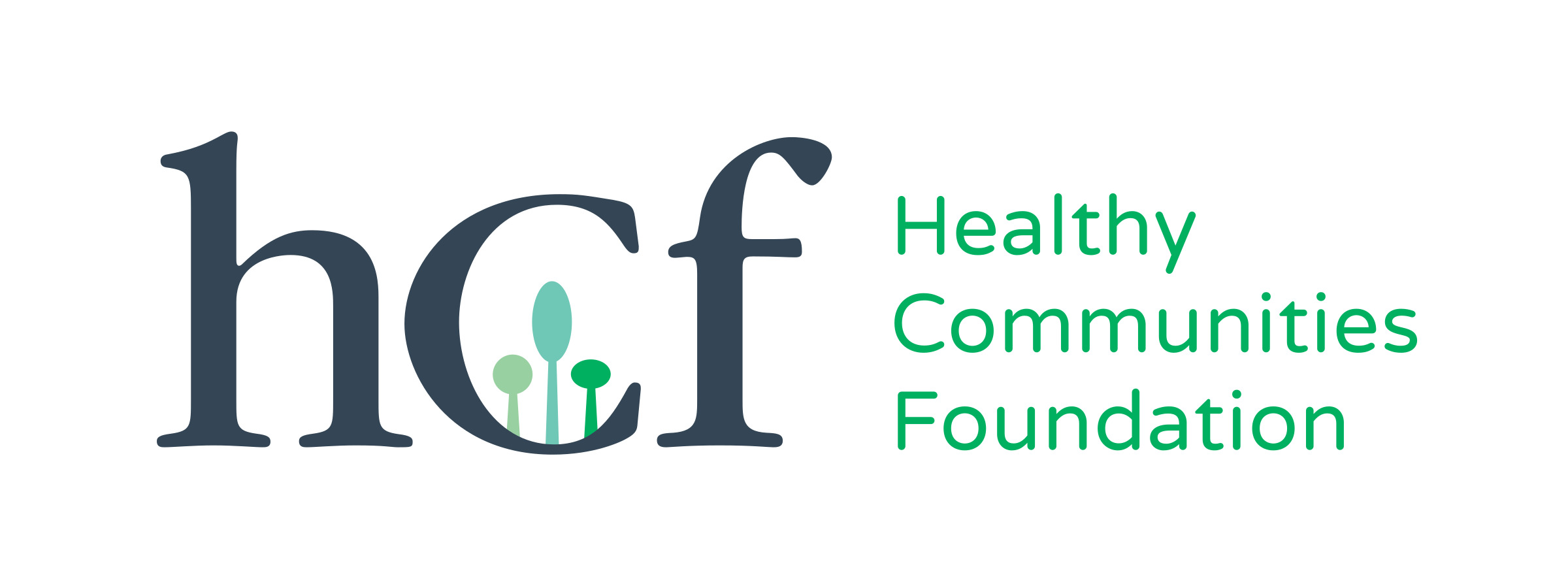Where we live impacts every aspect of our lives and health—from employment opportunities to food access to life expectancy. Discriminatory policies, like redlining, have historically displaced BILPOC individuals and families, limiting access to resources in their communities that influence their health and well-being. Although the Fair Housing Act was passed 54 years ago, which prohibited housing discrimination based on race, gender, religion, national origin, or disability, the fight continues for fair and equitable housing today.
National Fair Housing Month: The Fight for Equitable Housing

- Posted at
- in Blog
- by Stephanie Campos
- . No Comments
The U.S. Department of Housing and Urban Development (HUD) recognizes each April as National Fair Housing Month and commits to advancing equity in housing and securing equal access to housing opportunities for all. Alongside our grantee partners, we support fair and equitable housing in our service region because we believe that every individual deserves a safe place to live, grow, and thrive.

COVID’S IMPACT ON HOUSING
The COVID pandemic inequitably increased the number of BILPOC households experiencing housing insecurity or precarious housing situations across the country and particularly in Chicago and surrounding suburbs. As explained in the 2020 UIC Institute for Research on Race and Public Policy Deadly Disparities in the Days of COVID-19 report, despite stay-at-home mandates, many Black and Latinx individuals had little choice but to work outside of the home during the height of the pandemic to make ends meet. As a result, the risk of COVID exposure increased for themselves and their families: “Both nationally and locally, housing insecurity caused many to work in unsafe, public-facing jobs, exposing family members to infection risks as they still experienced mounting debt and fears of eviction.”
In our 2021 Community Partner Insights Report, Reimagining Health and Wellness: Building an Equitable COVID-19 Recovery With Community, our grantee partners shared that residents in our region, especially BILPOC communities, experienced an increased need for housing advocacy, landlord mediation, and rental assistance during the pandemic. We heard distressing stories from our partners about local tenants experiencing violence or abusive behavior by landlords, which made staying safe from the pandemic more difficult.
FAIR HOUSING EFFORTS IN OUR REGION
Several of our grantee partners are dedicated to advancing housing equity and supporting homelessness prevention. We are proud to support their ongoing efforts to advocate for affordable housing access and end housing discrimination in our region.
REBUILDING AND RECOVERING
As a strategy to address the housing insecurity many Southwest Side families faced in the early 2000s, our multi-year partner Southwest Organizing Project (SWOP) launched their Reclaiming Southwest Chicago campaign to transform the area by buying and rehabbing vacant buildings.
Recently, SWOP received $1 million in federal funding to buy, rehab, and revive vacant homes in the Chicago Lawn neighborhood through the Reclaiming Southwest Chicago campaign. The funding will revive Chicago Lawn’s housing market from 51st to 74th Streets and Western to California Avenues.
SWOP’s Reclaiming Southwest Chicago campaign demonstrates how to rebuild a community from within and restore affordable housing in the area to benefit local families through community organizing and collaboration.
ADVOCATING FOR IMMIGRANT HOUSEHOLDS
Because undocumented immigrants and immigrants who file their taxes with an Individual Taxpayer Identification Number, even in mixed-status households, were not eligible to receive economic pandemic relief during the height of the pandemic, their vulnerability to housing insecurity was compounded and the effects of that can still be felt today. Some of our grantee partners who serve the undocumented immigrant community reported immigrant tenants receiving threats of illegal evictions and criminal neglect of units from landlords throughout the pandemic, an example that fueled the continued “chilling effect” of the 2020 Trump administration’s public charge rule change.
With a growing older adult population in Chicago and surrounding suburbs, undocumented seniors are experiencing displacement from homes they have rented for decades due to increased rental rates, as reported by the Chicago Tribune and Injustice Watch Aging in the Shadows series. As undocumented individuals reach retirement age, they face slim housing options and are not eligible for federally funded housing supports.
To advance equitable housing for immigrants, our multi-year partner Latino Policy Forum released their handbook: Housing Rights for Immigrant Tenants, a comprehensive guide to tenant protections, accessible housing resources, and landlord responsibilities and obligations–a guide for community and housing advocates in Chicago and throughout the State of Illinois.
SUPPORTING HOMELESSNESS PREVENTION
Advocating for affordable and fair housing and tenants’ rights are efforts that prevent people from becoming unhoused. As many Illinoisians have recently become housing insecure due to the pandemic, homelessness prevention is as important as ever.
Several grantee partners have homelessness prevention through the recent Illinois House Bill 2775, protecting community from housing discrimination and displacement. Our partners Alliance to End Homelessness in Suburban Cook County, Arab American Family Services, BEDS Plus Care, Enlace Chicago, Legal Council for Health Justice, Shriver Center on Poverty Law, and SWOP formally supported this bill, which passed the Illinois House on April 25, 2022—a victory for housing advocacy not only in our region but statewide.
Share This Article


